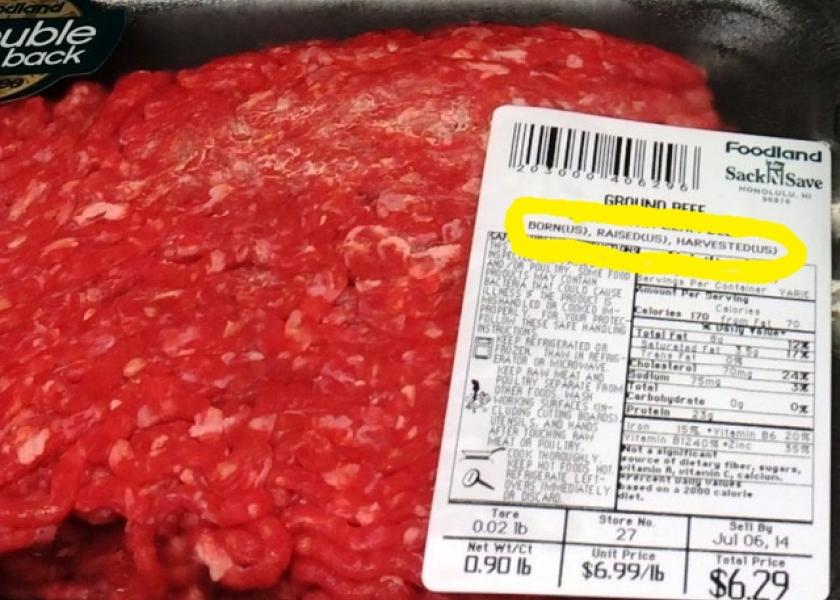House Votes to Repeal COOL

Under threat of trade retaliation from Canada and Mexico, the U.S. House of Representatives has voted to repeal a law requiring country-of-origin labels on packages of beef, pork and poultry.
The World Trade Organization rejected a U.S. appeal last month, ruling that the labels that say where animals were born, raised and slaughtered are discriminatory against the two U.S. border countries. Both have said they plan to ask the WTO for permission to impose billions of dollars in tariffs on American goods.
The House voted 300-131 late Wednesday to repeal labels that tell consumers what countries the meat is from — for example, "born in Canada, raised and slaughtered in the United States" or "born, raised and slaughtered in the United States." The Senate has yet to act.
The WTO ruled against the labels last year, prompting the appeal that was again rejected in May. The Obama administration has already revised the labels once to try to comply with previous WTO rulings, and Agriculture Secretary Tom Vilsack has said it's now up to Congress to change the law to avoid retaliation from the two countries.
The law was included in the 2002 and 2008 farm bills at the behest of northern U.S. ranchers who compete with the Canadian cattle industry. It also was backed by consumer advocates who say it helps shoppers know where their food comes from. Supporters have called on the U.S. government to negotiate with Canada and Mexico to find labels acceptable to all countries.
In a statement Thursday, a spokesman for U.S. Trade Representative Michael Froman said the Obama administration "has long taken the position that one way to end this dispute is by repeal, but we do not consider that this is the only way Congress could bring the United States into compliance with its obligations."
Canada and Mexico have opposed the labeling because it causes their animals to be segregated from those of U.S. origin — a costly process that has led some U.S. companies to stop buying exports.
Meat processors who buy animals from abroad as well as many others in the U.S. meat industry have called for a repeal of the law they have fought for years, including unsuccessfully in federal court. They say it's burdensome and costly for producers and retailers.
Canada and Mexico have said that if they are allowed by the WTO, they may impose retaliatory measures such as tariffs against a variety of U.S. imports. Their list includes food items like beef, pork, cheese, corn, cherries, maple syrup, chocolate and pasta, plus non-agricultural goods such as mattresses, wooden furniture and jewelry. The retaliatory measures could total more than $3 billion, the countries said.
According to USTR spokesman Andrew Bates, the WTO is expected to consider Canada and Mexico's requests later this month. The United States will then object, sending the matter to WTO arbitration.
"We will closely consult with Congress and interested stakeholders about possible next steps," Bates said.
The Canadian government said the vote was a positive move.
"The only way for the United States to avoid billions in retaliation by late summer is to ensure legislation repealing (country of origin labeling) passes the Senate and is signed by the president," said Canadian Minister of Agriculture and Agri-Food Gerry Ritz.







